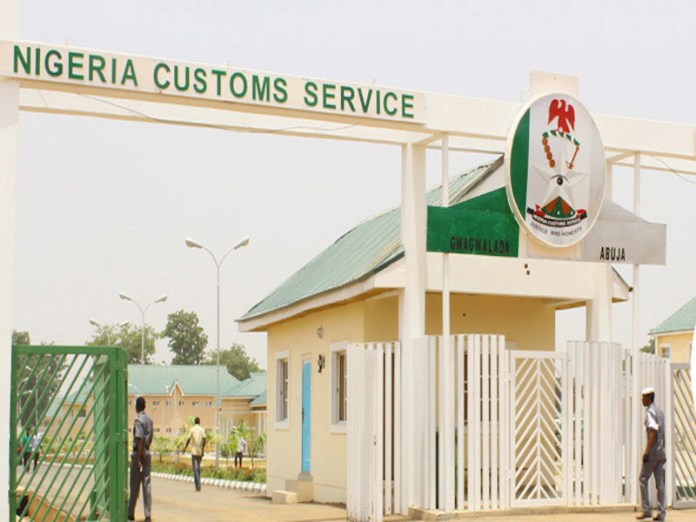- NCS Intercepts Contraband Worths N12m in WMC
The anti-smuggling campaign of the Nigeria Customs Service (NCS) has yielded more results as officers and men in the Western Marine Command (WMC) have confiscated contraband worth N12 million.
The feat was recorded following intensive efforts of WMC in combing the waterways sequel to a discovery that so many daring smugglers have resorted to the creeks and rivers as a way of escaping the onslaught of officers and men of the Federal Operations Unit (FOU) on land across the country.
The Customs Area Controller (CAC), WMC, Comptroller Mohammed Sarkin Kebbi who disclosed this while displaying the contraband at the command headquarters in Lagos said the service has taken the fight to the waterways.
He revealed that when the suspected smugglers were caught napping as they dived into the rivers in order to escape arrest.
The items seized by the NCS include 138 bales of second hand clothes, 10 bags of second hand clothes, eight sacks of children foot wears of rubber sandals, 477 cartons of frozen poultry products and 400 bags of foreign rice.
Kebbi dislosed that the bales of clothing, rubber sandals and frozen poultry products were seized at Ilufe Ojo-Alaba by the joint patrol team of the command.
His words: “No arrest was made because the smugglers abandoned the items and flee. As for the foreign parboiled rice, the seizure took place at Tungeji/Ijofin Creek along Nigeria/Republic of Benin axis. Again, the smugglers on sighting the officers and men who laid ambush on them, dived into the waters”.
A breakdown of the seizure showed that the goods valued at N12, 073, 692 with a duty of N3, 348, 189, 40 and a Duty Paid Value (DPV) of N12, 509, 896. While 80 big bales, 58 small bales and 10 sacks of second hand clothes is valued at N6,100,000.00, its duty is put at N1,220,000.00, just as its DPV amounts to N7,320,000.00.
Similarly, eight sacks of children rubber sandals valued at N200,000.00, came with a duty of N40,000.00 and a DPV of N240,000; 477 cartons of frozen poultry products is valued at N2,862,000. For the 400 bags of foreign parboiled rice of 50kg each, the value is put at N2, 911, 692 just as the duty is N2, 038, 184. The DPV is N4, 949,876.4.
The WMC CAC lauded the Comptroller General of Customs, Colonel Hameed Ibrahim Ali (retired) and his management team for their support in the strides the command has made since he took over the rims of administration from his predecessor, Comptroller Yusuf Umar (retired).
According to him, the support of Ali and his management team has boosted the moral of officers and men of his command.
He warned smugglers and criminals in the nation’s waterways to stay clear as the men and officers of WMC will not rest on its oars until they smoke out smugglers out of the command areas of jurisdiction.



 Naira4 weeks ago
Naira4 weeks ago


 Naira3 weeks ago
Naira3 weeks ago


 News4 weeks ago
News4 weeks ago
 Travel4 weeks ago
Travel4 weeks ago




 Naira4 weeks ago
Naira4 weeks ago
 Naira3 weeks ago
Naira3 weeks ago


 Jobs3 weeks ago
Jobs3 weeks ago


 Travel3 weeks ago
Travel3 weeks ago




















